The Rules of Life
The Ten Commandments


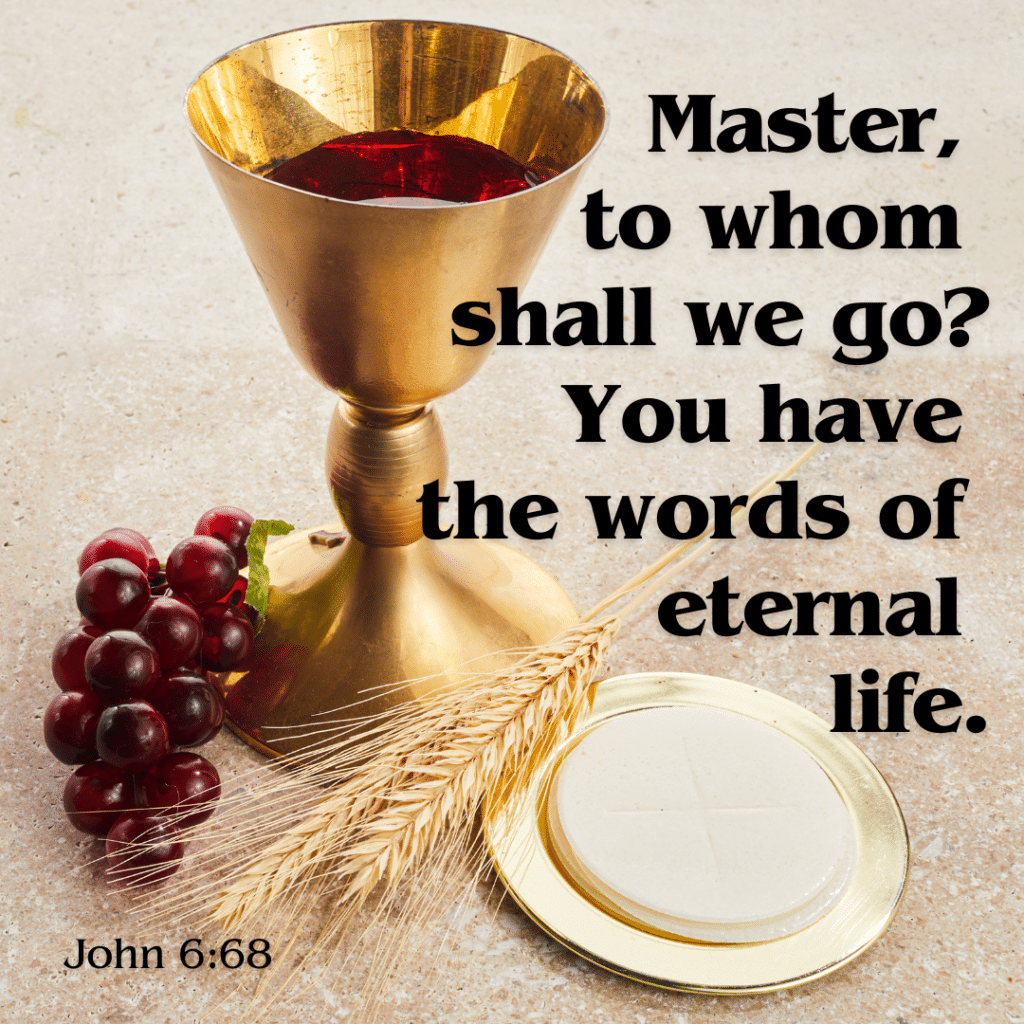
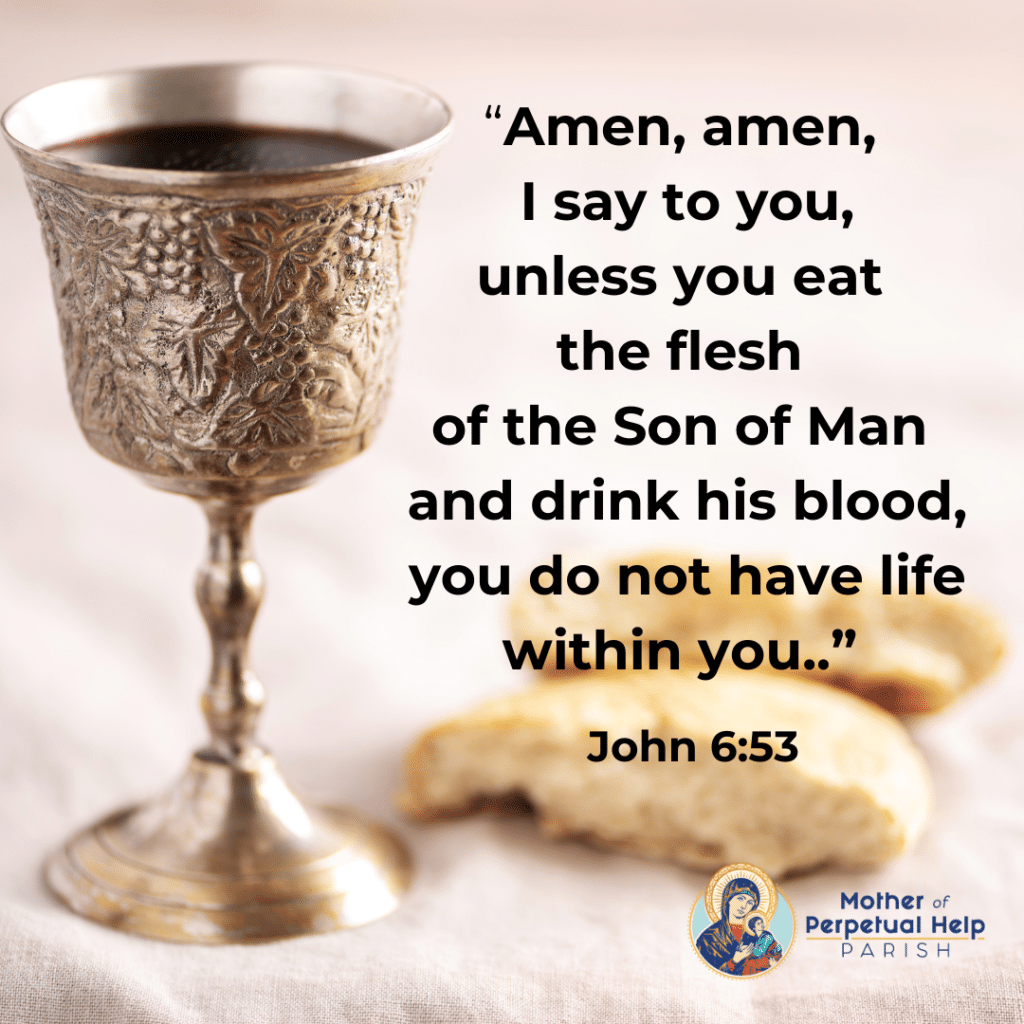
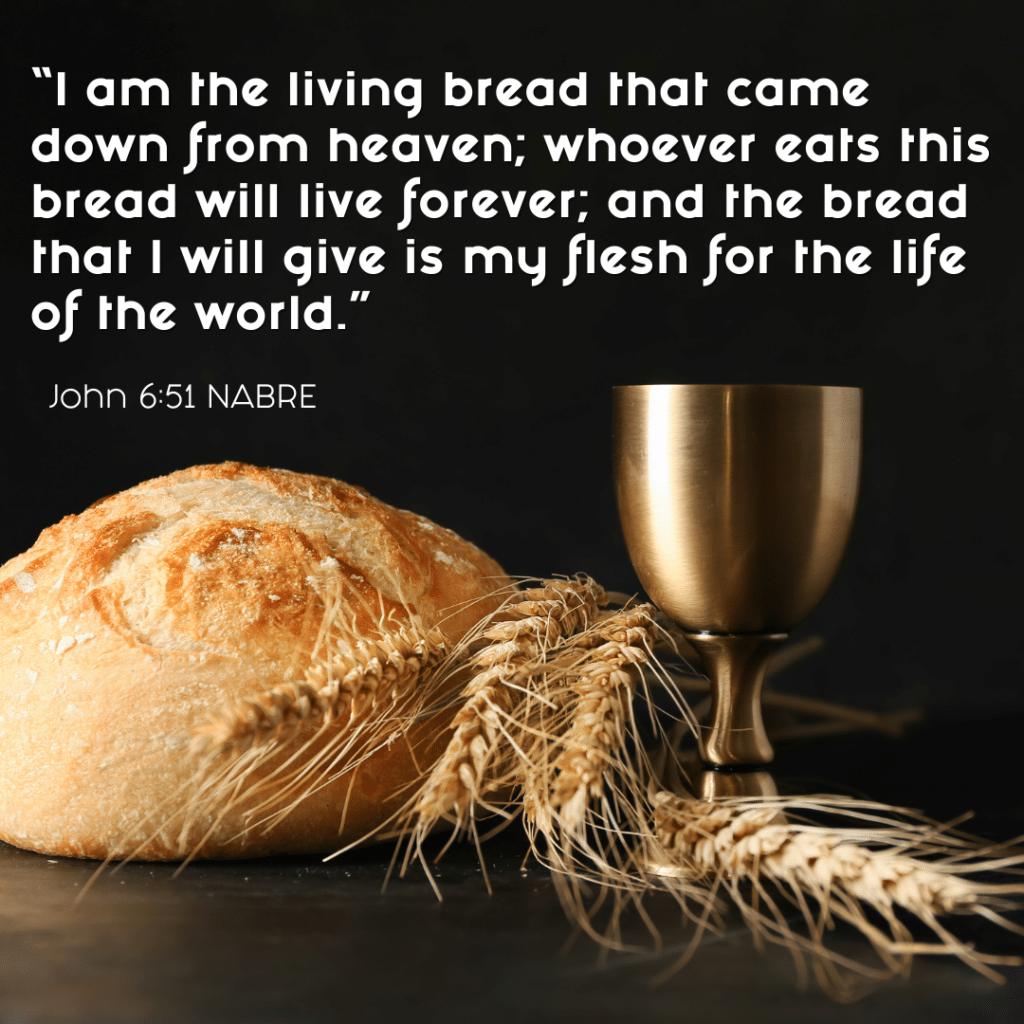
This is why the Eucharist was revered as early as the third century, and perhaps even earlier. Why monks, who were transporting the Eucharist to those in remote places, Revered Him and prayed before Him in the Eucharist. It is because Jesus IS the Living Bread.
If you are looking for more advanced reading, and an excellent resource on the Bread of Life discourse, check out this article on the Catholic Answers website. It discusses how to refute errors in understanding John 6. In this article, Bob Sullivan makes his well-researched rebuke of fundamentalist James White’s video denying the True Presence.
This Sunday’s Gospel continues “The Bread of Life Discourses,” where we read from the Gospel of John. In this Gospel reading, Jesus tells us He is the Bread of Life. If you want to read this upcoming Sunday’s scriptures, you can do so at the USCCB’s website here.
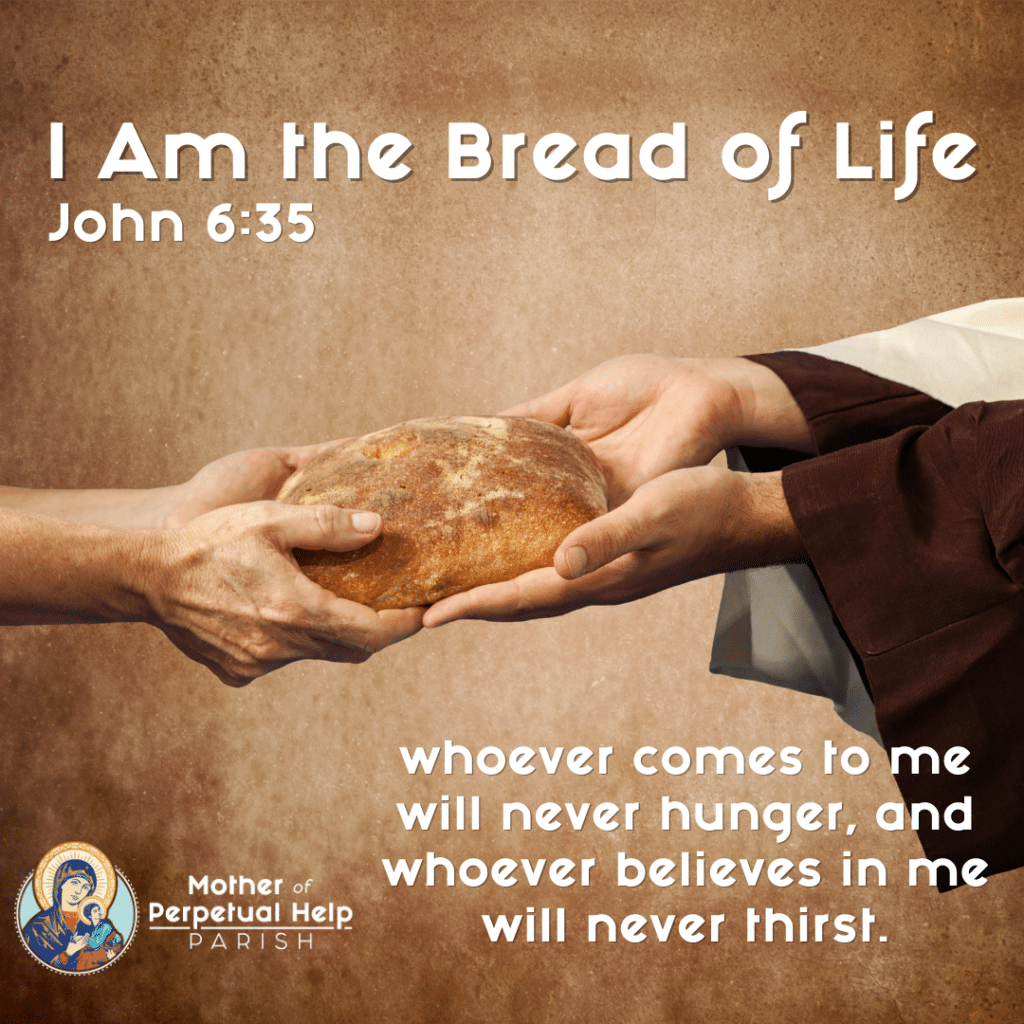
In John 6:35, Jesus said to them, “I am the bread of life; whoever comes to me will never hunger, and whoever believes in me will never thirst.”
The miracle in last week’s Gospel garnered Jesus fame; the crowds were growing with followers. Some of them were just happy to be fed by someone. Others thought He would be a military leader who would overthrow the Romans. Jesus is teaching the disciples that he is more than a prophet; but the disciples do not always “get it.” We don’t always get it, either. The Pew research survey taken in 2019 shows this. The alarming trend of Catholics not believing in the True Presence of the Eucharist was the impetus for the whole Eucharistic revival.
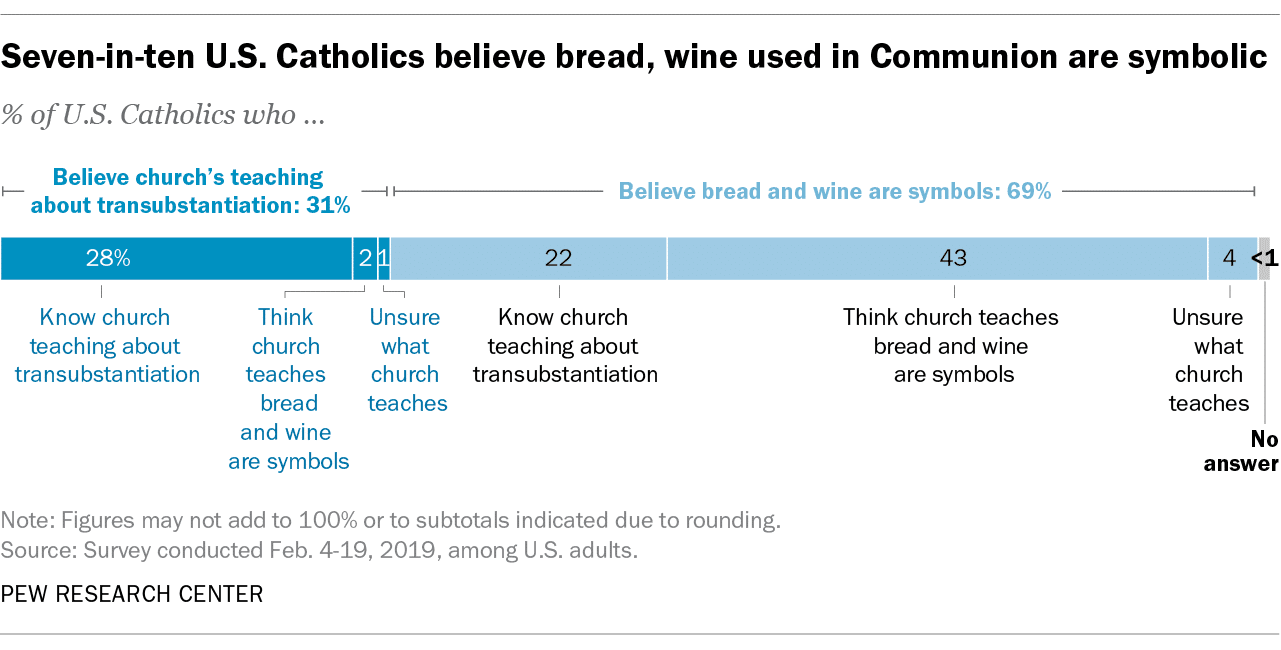
John chapter 6:35 is very plain and direct in its language: “I am the bread of life.” He is not mincing words. The strength of the language here emphasizes what Jesus is teaching us. The whole of the Bread of Life Discourse is Eucharistic.
If we page back a few chapters to John chapter 3:3-5, Jesus is talking about Baptism to Nicodemus:
Jesus answered and said to him, “Amen, amen, I say to you, no one can see the kingdom of God without being born from above.”
Nicodemus said to him, “How can a person once grown old be born again? Surely he cannot reenter his mother’s womb and be born again, can he?”
Jesus answered, “Amen, amen, I say to you, no one can enter the kingdom of God without being born of water and Spirit.
When Nicodemus misunderstands, Jesus clarifies his teaching in order for Nicodemus to understand because He is speaking metaphorically. There are many places in all the Gospels when He does this. However, it is not so in the Bread of Life discourse. When Jesus is questioned, he doubles down on this teaching, showing us He is not speaking metaphorically. In the next few weeks in the Gospel, we will see this and we will see the effect Jesus’s plain language has on His ministry.
Stay tuned…
This Sunday’s Gospel, although it is ordinary time, is special that it is part of “The Bread of Life Discourses,” where we switch to the Gospel of John. In this Gospel reading, Jesus feeds a vast crowd with a boy’s five barley loaves and two fish. If you want to read Sunday’s scriptures, you can do so at the USCCB’s website here.
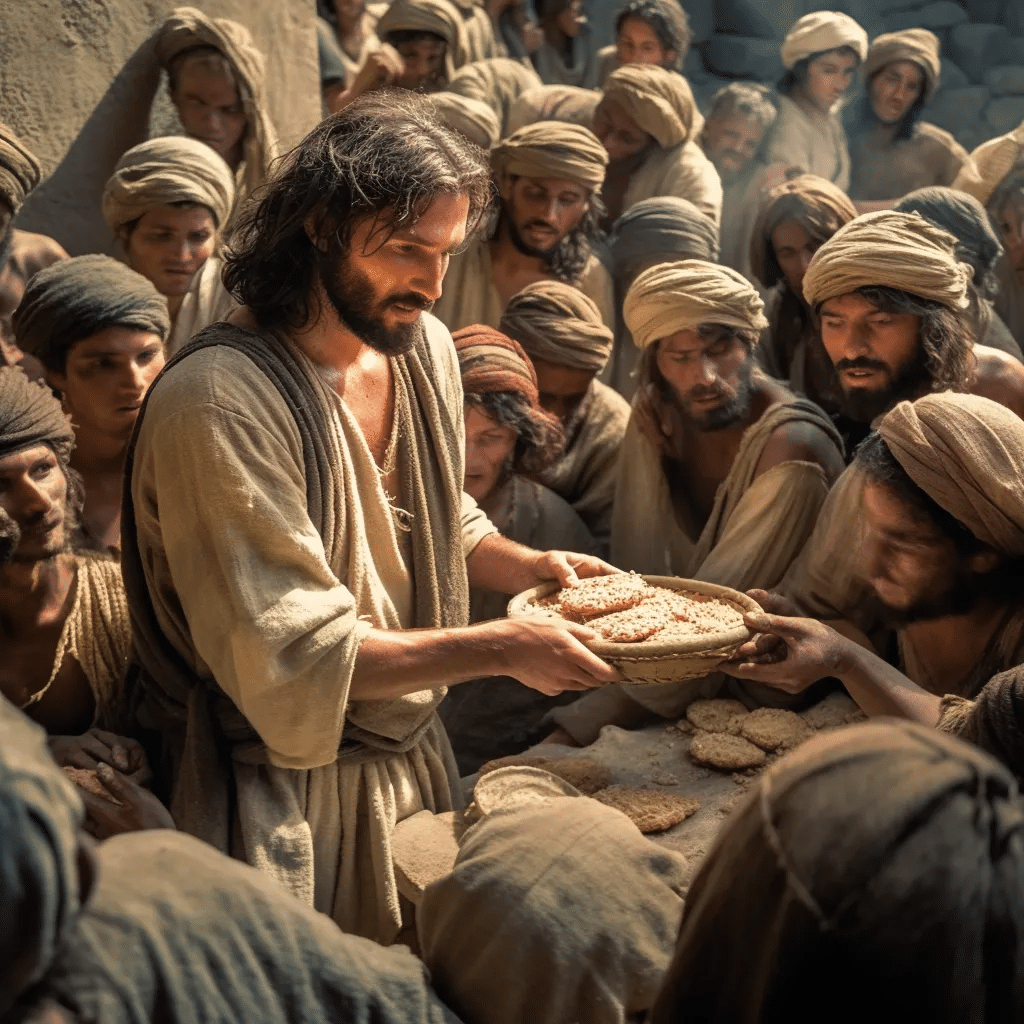
This miracle is described in all four Gospels, which highlights its importance to the early Church and believers. There is a modern thought that this was a “miracle of sharing” – that Jesus just encouraged people to share what they had. This thought, however, is not supported in the Gospels themselves. This was an impromptu crowd. They were following Jesus because He was healing the sick. This was not an event where people were bringing food. Philip had said, “Two hundred days’ wages worth of food would not be enough for each of them to have a little.” Jesus fed them, multiplying the loves and fishes Himself to the whole crowd. This was a true miracle of God. They were so amazed, that they wanted to carry Him off and make Him a King! A simple sharing would not be so great an event the crowd would rebel to replace their king.
How often do we feel our own efforts are too meager? A great teaching in this Gospel is how one act of kindness can multiply to others. The boy’s willingness to share his own food is the true sharing in this Gospel, where his kindness here is multiplied by Jesus. In turn, Jesus’s own kindness is shown here in making sure all the people were fed. In our daily lives, a kind word of encouragement or a small act of charity can be multiplied by the Holy Spirit if we allow it.

Our elderly family, friends and parishioners can offer us a wealth of wisdom only gained from their lives well lived. Take July 28 as a day to stop and tell them you appreciate them. A text, phone call or visit can alleviate the loneliness and isolation they often feel.